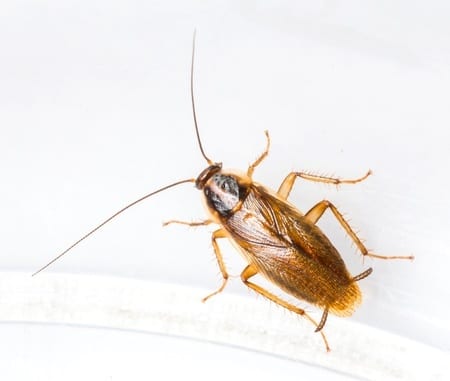Cockroaches Avoid Eating Sweets In Order To Survive
Cockroaches Avoid Eating Sweets In Order To Survive

These days many people around the world are becoming progressively more health conscious. Now that a variety of different foods can be accessed from your nearest grocery store, avoiding starvation is no longer a concern for most people. Now that food can be attained with minimal effort, modern people are more concerned with eating healthy. Eating sweet-tasting foods can be tempting, but sweet foods are not typically the best choice when it comes to healthy eating. Therefore, sweet-tasting foods are typically avoided by people who are looking to improve their health. As it turns out, humans are not the only animals that are laying-off the sweets. A recent study has shown that German cockroaches are also avoiding sweets in order to ensure a longer life. Unfortunately, this recent trend has posed a challenge to pest control professionals, as German cockroaches are now avoiding traps that contain sweet-tasting baits.
During the nineties a pest control professional began to notice that German cockroaches were avoiding sticky traps that used sweet-tasting baits to lure roaches to their deaths. Such sweet-tasting baits used to work well for trapping cockroach pests, but cockroaches managed to avoid these baits by literally changing their internal chemistry. This change in internal chemistry made sweet-tasting baits taste bitter to German cockroaches. As a result of this change, German cockroaches now avoid sweet-tasting baits.
Cockroaches do not possess taste buds like humans do; instead they possess “taste hairs” which are located at various points on their bodies. These hairs pick up a taste while two different nerve cells sense tastes by sending electrical impulses to a roache’s brain. One nerve cell responds to sweet-tasting sugars while the other responds to bitter tastes. Sweet tastes are sought after by roaches while bitter tastes are avoided. In a short period of time, German cockroaches mutated in such a way that sweet-tasting baits started registering as bitter tastes. This mutation has allowed German cockroaches to avoid many forms of insect pest control that use sweet-tastes as an attractant. Luckily, this research may prove to be helpful as it can lead to more effective pest control products down the line.
Do you think that the above explained mutation occurred in response to the environment, or was the mutation a random occurrence that ended up benefiting cockroaches?






